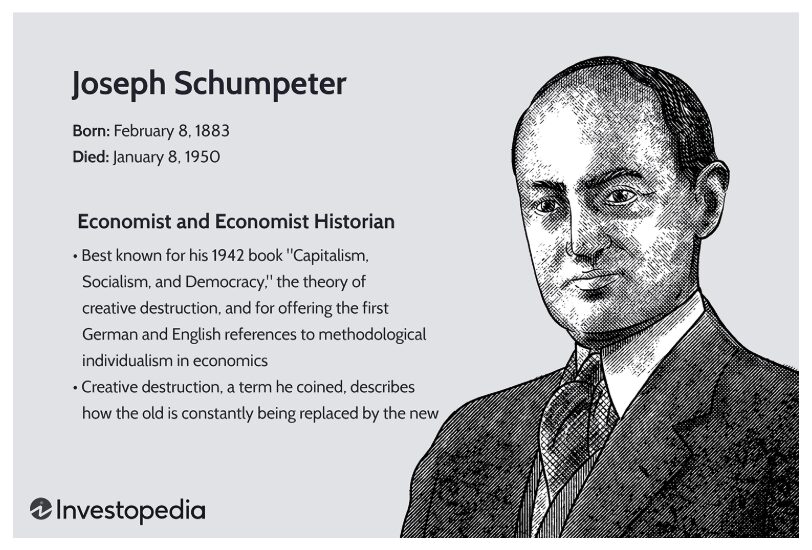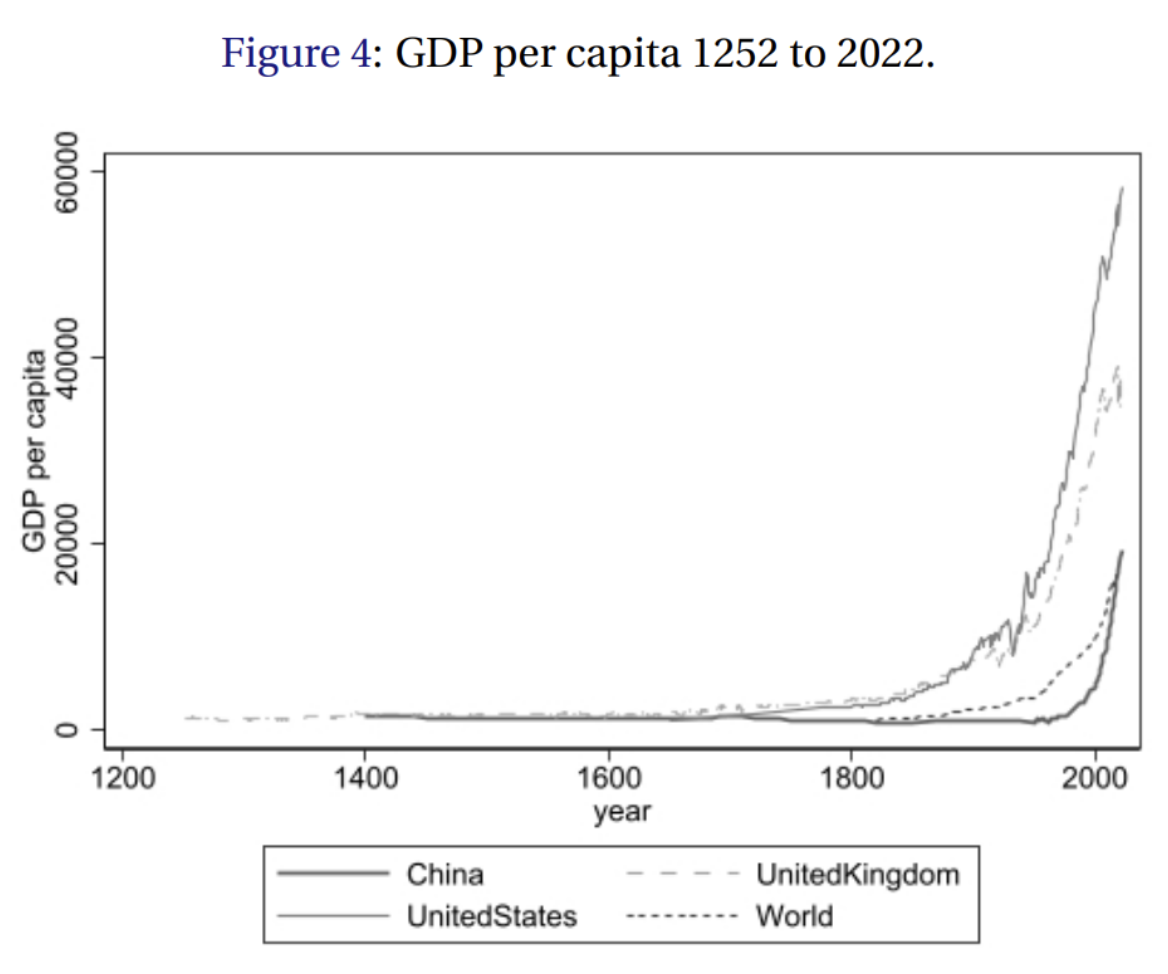Actually, three other economists – Joel Mokyr of Northwestern, Philippe Aghion from the Collège de France and the London School of Economics, and Peter Howitt from Brown – won the Nobel in economics.
But each for expanding on the 100-year old ideas of one of our favorite economists, Austrian Joseph Schumpeter, who preached the wealth-enhancing forces of “creative destruction.” By this, Schumpeter meant that innovation creates a virtuous cycle of market disruption and creation – leaving everyone better off.

This chart shows how the innovation nations – the UK at the start of the Industrial Revolution and then the U.S. in the 20th century – outgrew the nations that empower interest groups that use political power to thwart change:
This is a seminal message now as we move rapidly into the area of robotics and AI – with millions of jobs replaced by super-advanced automation. Some are fearful. But this productivity burst should be met with hope and joy as living standards soar for even the poorest people on the planet.


